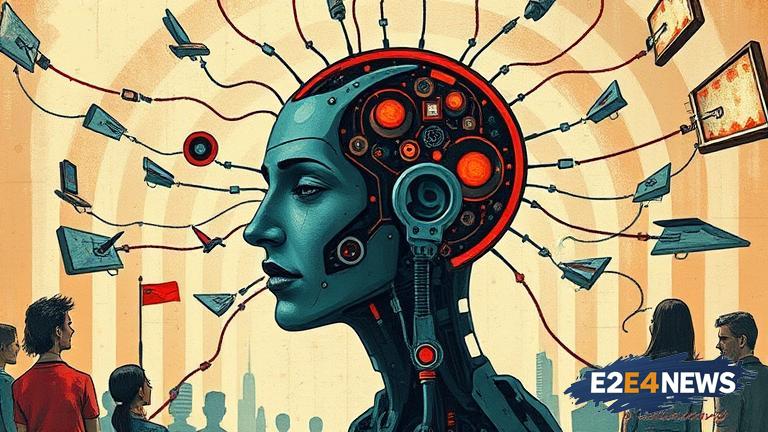The rapid development and integration of artificial intelligence (AI) into various aspects of life have sparked intense debates about its implications on society, economy, and human relationships. A growing concern is that the current trajectory of AI development, largely driven by corporate interests, may exacerbate existing social inequalities and undermine democratic values. In response, a leftist alternative to AI has begun to take shape, emphasizing the need for technology to serve the broader interests of society rather than just accumulating wealth for a few. This approach advocates for a more inclusive, equitable, and transparent development of AI, ensuring that its benefits are accessible to all and that its risks are mitigated. At the heart of this alternative is a critical examination of the power structures and economic systems that underpin the current AI landscape. It challenges the dominant neoliberal paradigm that prioritizes efficiency, productivity, and profit over human well-being and social justice. Proponents of the leftist alternative argue that AI should be developed and deployed in ways that promote collective ownership, democratic control, and the common good. This could involve community-led AI initiatives, cooperative ownership models, and public investments in AI research and development that prioritize social and environmental outcomes. Furthermore, there is a strong emphasis on ensuring that AI systems are transparent, accountable, and free from biases that perpetuate discrimination and inequality. This requires a multidisciplinary approach, involving not just technologists but also social scientists, ethicists, and community representatives in the design and governance of AI. The leftist alternative to AI also highlights the importance of protecting and enhancing workers’ rights in the age of automation. As AI and automation replace certain jobs, there is a need for a robust social safety net, continuous education and retraining programs, and a universal basic income to ensure that everyone has a dignified standard of living. Additionally, this perspective calls for a global response to the challenges posed by AI, recognizing that the impacts of AI are not confined to national borders. International cooperation and agreements are necessary to establish common standards and regulations for AI development and use, preventing a race to the bottom and ensuring that AI serves humanity as a whole. Critics of the leftist alternative might argue that such an approach could stifle innovation and hinder the potential benefits of AI. However, proponents counter that a more equitable and democratic AI ecosystem could actually lead to more sustainable and beneficial technological advancements in the long run. By prioritizing human needs and social justice, the leftist alternative to AI seeks to create a future where technology enhances the quality of life for all, rather than just the privileged few. This vision is not without its challenges, requiring significant shifts in how we think about technology, economy, and society. Nevertheless, as the world grapples with the profound implications of AI, the leftist alternative offers a critical and hopeful perspective, one that imagines a future where technology is harnessed for the common good. The development of this alternative is an ongoing process, involving dialogue, experimentation, and collective action. It requires engagement from a wide range of stakeholders, including policymakers, technologists, activists, and community leaders. Through this collaborative effort, it is possible to create an AI that truly serves humanity, promoting a more just, equitable, and peaceful world. The journey towards this goal will undoubtedly be complex and challenging, but the potential rewards are immense. As we stand at the crossroads of technological advancement and social transformation, the leftist alternative to AI offers a beacon of hope for a better future. It reminds us that the development of AI is not just a technical issue but a deeply political and social one, requiring a nuanced understanding of power, inequality, and justice. By embracing this perspective, we can work towards an AI that enhances human dignity, promotes social solidarity, and contributes to a more sustainable and equitable world. Ultimately, the leftist alternative to AI is about reimagining the relationship between technology, society, and humanity, with the goal of creating a future that is more just, compassionate, and fulfilling for all.





